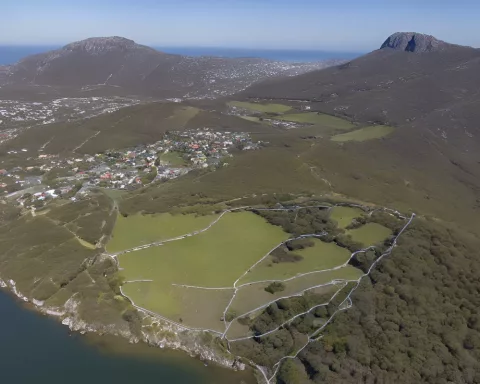Celebrity chef Lusizo Mvula Henna, owner of Blaque Olive Chefs, has been sentenced to ten years in prison for fraud and money laundering, costing the South African Revenue Service R5.3 million. Henna illegally claimed VAT refunds and laundered R3.1 million within two weeks. The court deemed his actions a threat to the country’s financial stability, highlighting the importance of financial transparency in the culinary industry and the need for the justice system to protect the national treasury. This serves as a reminder that financial integrity is as crucial as culinary artistry.
A Shocking Culinary Scandal: The Unraveling of Celebrity Chef Lusizo Mvula Henna
Celebrity chef Lusizo Mvula Henna, owner of Blaque Olive Chefs, was sentenced to ten years in jail for six counts of fraud and 14 counts of money laundering that cost South African Revenue Service (SARS) a total of R5.3 million. Henna illegally claimed VAT refunds, redirecting R3.1 million into his personal account and laundered the sum within two weeks among relatives and friends. The court ruled that Henna’s actions were a threat to the country’s financial stability, highlighting the importance of financial transparency in the culinary industry.
Within the realm of gastronomy, where the finesse of cooking merges with commercial prowess, a startling incident occurred. Celebrated celebrity chef, Lusizo Mvula Henna was found guilty and handed a ten-year jail sentence by the Johannesburg Specialised Commercial Crimes Court for masterminding a fraudulent operation that cost the South African Revenue Service (SARS) a considerable sum.
A Deceptive Scheme Unmasked
Henna, the owner of the prestigious Blaque Olive Chefs, was pronounced guilty on six counts of fraud and 14 counts of money laundering. The court’s judgment exposed a disconcerting trend of financial misdeeds, with Henna illicitly claiming VAT refunds amounting to R5.3 million. The consequence of this deceit was the redirection of R3.1 million from SARS into Henna’s pocket. Speaking on the judgment, the court’s spokesperson, Phindi Mjonondwane, stated, “These claims were exclusively contrived to swindle SARS”.
In the world of business, where every cent matters, the lack of trading activity in Blaque Olive’s bank accounts triggered suspicion, as it starkly contrasted Henna’s illegal claims. Upon tracing the money’s path, investigators found that Henna had laundered R3.1 million within a fortnight of receiving it, scattering the money among relatives and friends.
The Impact on the Nation’s Economy
The prosecution, spearheaded by Marius Oosthuizen, presented a robust body of evidence revealing the damaging effects of such frauds on a nation’s financial health. This case was represented not merely as an offense against SARS but as an attack on the government’s ability to render essential services to its citizens.
In a time when financial probity is crucial, the prosecution argued that only a stern punishment, like direct imprisonment, would underline South Africa’s stance on financial crimes. They presented this as a preventative measure, potentially shielding the country from the disgrace of being grey-listed.
The court case underscored the critical function of the justice system in protecting the national treasury. Oosthuizen’s thorough investigative team was lauded for their commitment to making Henna answerable for his actions against the country’s financial stability.
The Downfall of a Renowned Chef
Within the structure of Blaque Olive Private Chefs CC, Henna served as the sole member and representative. His fall from grace started with the submission of six bogus VAT refund claims. As SARS commenced an audit and requested supporting documents, Henna was unable to deliver any. The successive audit results were devastating, substantiating that Henna had indeed deceitfully claimed VAT refunds.
This case acts as a wakeup call to the potential risks and shady practices present in the culinary business sector, stressing the need for unequivocal financial transparency. Despite his fame and standing in the culinary world, Henna’s disgrace underscores that no individual is exempt from the law. It is a potent reminder that financial integrity is as essential to society as the artistry of a perfectly prepared meal.
1. What was Lusizo Mvula Henna’s sentence?
Lusizo Mvula Henna was sentenced to ten years in prison.
2. What charges was Henna found guilty of?
Henna was found guilty of six counts of fraud and 14 counts of money laundering.
3. How much did Henna’s actions cost the South African Revenue Service?
Henna’s actions cost the South African Revenue Service a total of R5.3 million.
4. How did Henna launder the money?
Henna laundered the money by redirecting R3.1 million into his personal account and then distributing the sum among relatives and friends.
5. Why was Henna’s case important for financial transparency in the culinary industry?
Henna’s case highlights the importance of financial transparency in the culinary industry and serves as a reminder that financial integrity is as crucial as culinary artistry.
6. What was the impact of Henna’s actions on the nation’s economy?
Henna’s actions were represented not merely as an offense against SARS but as an attack on the government’s ability to render essential services to its citizens. The case underscored the critical function of the justice system in protecting the national treasury.











